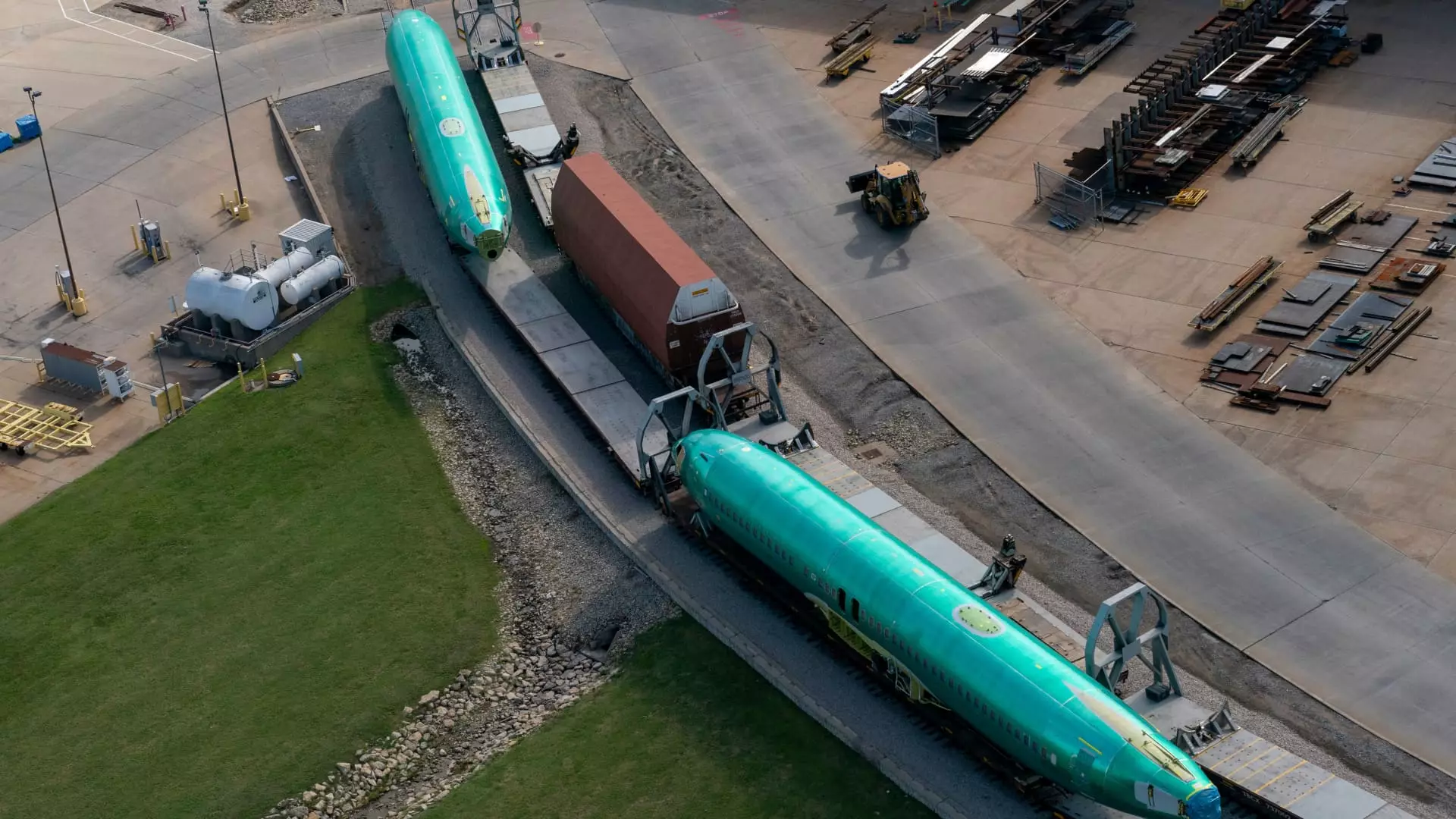The aerospace sector is encountering severe challenges as labor disputes between Boeing and its machinists extend into an extended timeline. Spirit AeroSystems, a critical supplier to Boeing, faces the possibility of furloughing or laying off hundreds of its employees if conditions do not improve by late November. Reports indicate that the Boeing machinists, whose strike is in its sixth week, overwhelmingly rejected a new labor contract proposal, thereby prolonging the disruption affecting production primarily centered around the Seattle region.
The turbulence Boeing faces in the labor market has a cascading effect, reaching deep into its supply chain, which includes companies like Spirit AeroSystems. The company’s production capabilities have been drastically impacted as Boeing’s operations become stymied, particularly in the production of the beloved 737 Max. Spirit is already preparing to temporarily furlough approximately 700 employees at its Wichita, Kansas facilities, with such furloughs potentially commencing next week.
As the strike continues, the strain on the aerospace supply chain becomes increasingly visible. The reluctance of Boeing’s suppliers to make staffing cuts reflects years of rebuilding after the COVID-19 pandemic, which had previously forced many companies to downsize significantly. This hesitance illustrates the inherent fragility of the current aerospace supply chain, as many suppliers have only recently restored strength to their workforce, making them vulnerable to further disruptions.
Moreover, Airbus is not exempt from these challenges; it, too, is experiencing significant supply chain pressures. The dual strains on both Boeing and Airbus underscore a broader concern within the aerospace sector—it is a delicate ecosystem that relies on stability and predictability to maintain operations and meet consumer demands.
The financial repercussions of the current strike are palpable. Spirit AeroSystems reported an alarming net loss of $477 million for the third quarter of the year, reflecting a sharp increase in losses compared to the same period last year. Such financial distress not only threatens the workforce at Spirit but raises questions about its viability as Boeing moves forward with plans to acquire the company. The acquisition, projected to close next year, conceivably complicates the relationship between Spirit and Boeing during this crucial transitional period.
Boeing’s new CEO, Kelly Ortberg, has voiced a commitment to resolving the labor dispute as a top priority, and the machinists’ union remains open to negotiations to reach a favorable resolution. The urgency of the situation cannot be understated; without reaching an agreement soon, both Boeing and its suppliers, like Spirit, risk exacerbating an already complicated set of operational challenges.
As the aerospace sector grapples with these disruptions, the focus will be on how quickly Boeing can finalize its negotiations with the machinists and what strategies Spirit will employ to navigate this tumultuous landscape. The stakes are high, not just for the companies involved, but for the broader economy reliant on aircraft manufacturing and innovation. The future trajectory of Spirit AeroSystems, alongside Boeing’s recovery, will ultimately hinge on effective conflict resolution and the rebuilding of a resilient supply chain able to withstand future challenges.

